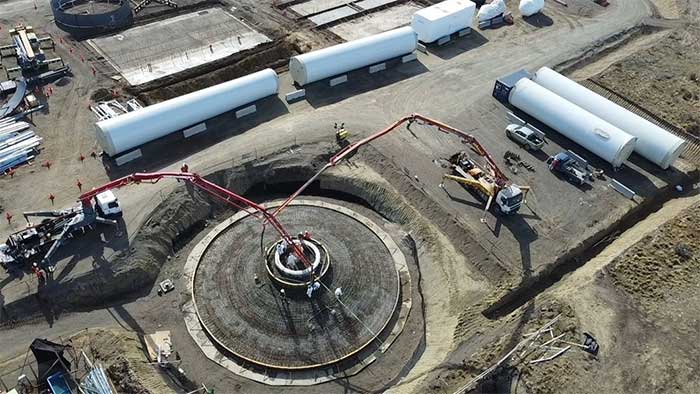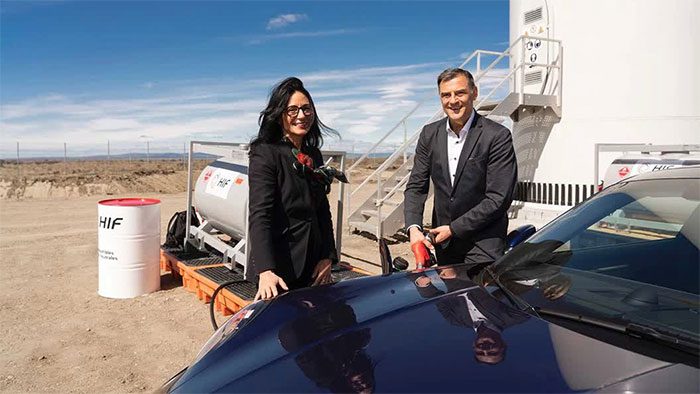Recently, Europe made a significant decision to ban the sale of gasoline or diesel-powered vehicles starting in 2035. The European Commission has recently convened to consider a plan that would allow the sale of vehicles powered by internal combustion engines from 2035 onwards, provided they run on a type of fuel that produces no emissions, tentatively referred to as green gasoline.
According to a description by Reuters, this unofficial plan proposes to define a new category of cars that can only operate on green gasoline. These vehicles would need to be equipped with technology that prevents them from operating on fossil fuels.

Europe is discussing allowing the continued sale of vehicles using internal combustion engines running on green gasoline.
This plan could pave the way for car manufacturers to continue selling vehicles powered by internal combustion engines beyond 2035.
As mentioned earlier, after months of discussions, the European Parliament and member states agreed to ban the sale of gasoline or diesel vehicles starting in 2035. However, the German Ministry of Transport surprised other countries by opposing the plan at the last minute—just days before the regulation was set to take effect.
The core desire of the German Ministry of Transport is for Europe to license the sale of vehicles using green gasoline after 2035. On Tuesday, March 21, the German Ministry of Transport stated that it and the European Commission are seeking a resolution to the issue—something the entire German automotive industry is closely monitoring.
According to two sources familiar with the matter, as reported by Reuters, the condition set by the European Commission that vehicles must recognize green gasoline and fossil fuels poses a significant challenge for Germany, as this would require automakers to develop new engines—an expensive undertaking.
Reuters’ sources also disclosed that German Transport Minister Volker Wissing does not want to oppose the European Commission’s proposal outright but seeks to modify certain aspects.
The European Commission and the German Ministry of Transport hope to reach a consensus today—Thursday, March 23.
A spokesperson for the European Commission declined to comment on the unofficial plan but referenced statements from Frans Timmermans, the EU climate policy chief, emphasizing that any proposed solutions must adhere to the agreed ban on the sale of gasoline and diesel vehicles.
An EU official told Reuters that a decision on any proposals regarding green gasoline vehicles could only be made after the ban on gasoline and diesel vehicles officially takes effect.
Green gasoline is understood to be a non-emission fuel produced by synthesizing CO2 captured from the air with hydrogen; the entire production process must use electricity that is also free from CO2 emissions (e.g., solar or wind energy).
This type of fuel is not yet produced on a large scale. The Potsdam Institute for Climate Impact Research has published a study indicating that in a few years, global green gasoline production projects will only be able to meet 10% of Germany’s demand in the aviation, transport, and chemical sectors.

HIF Global’s green gasoline plant.
Currently, Porsche is one of the investors in the research and production of the aforementioned green gasoline. Porsche has an experimental plant in Chile that officially started operations in late December 2022.
Specifically, Porsche holds a 12.5% stake in HIF Global, the company behind the green gasoline production plant in Chile, which can produce approximately 130,000 liters during the trial phase. At maximum production, Porsche expects to produce 55 million liters annually by 2025, increasing tenfold by 2027.

Porsche executives refueling a Porsche 911 with green gasoline.
Porsche’s synthetic fuel is produced using electricity from wind energy, electrolyzing water into oxygen and hydrogen; the resultant hydrogen is then combined with CO2 to create synthetic methanol. This methanol is subsequently converted into green gasoline that can be used in conventional internal combustion engines. When using this synthetic fuel, the amount of CO2 emitted is nearly equal to the amount of CO2 needed for its production, closely approaching the concept of zero-emission fuel.
This green gasoline production project is not limited to automobiles; this fuel type can also be utilized in aviation and transportation. During the production of green gasoline, synthetic methanol can replace crude fossil materials in the chemical industry.


















































